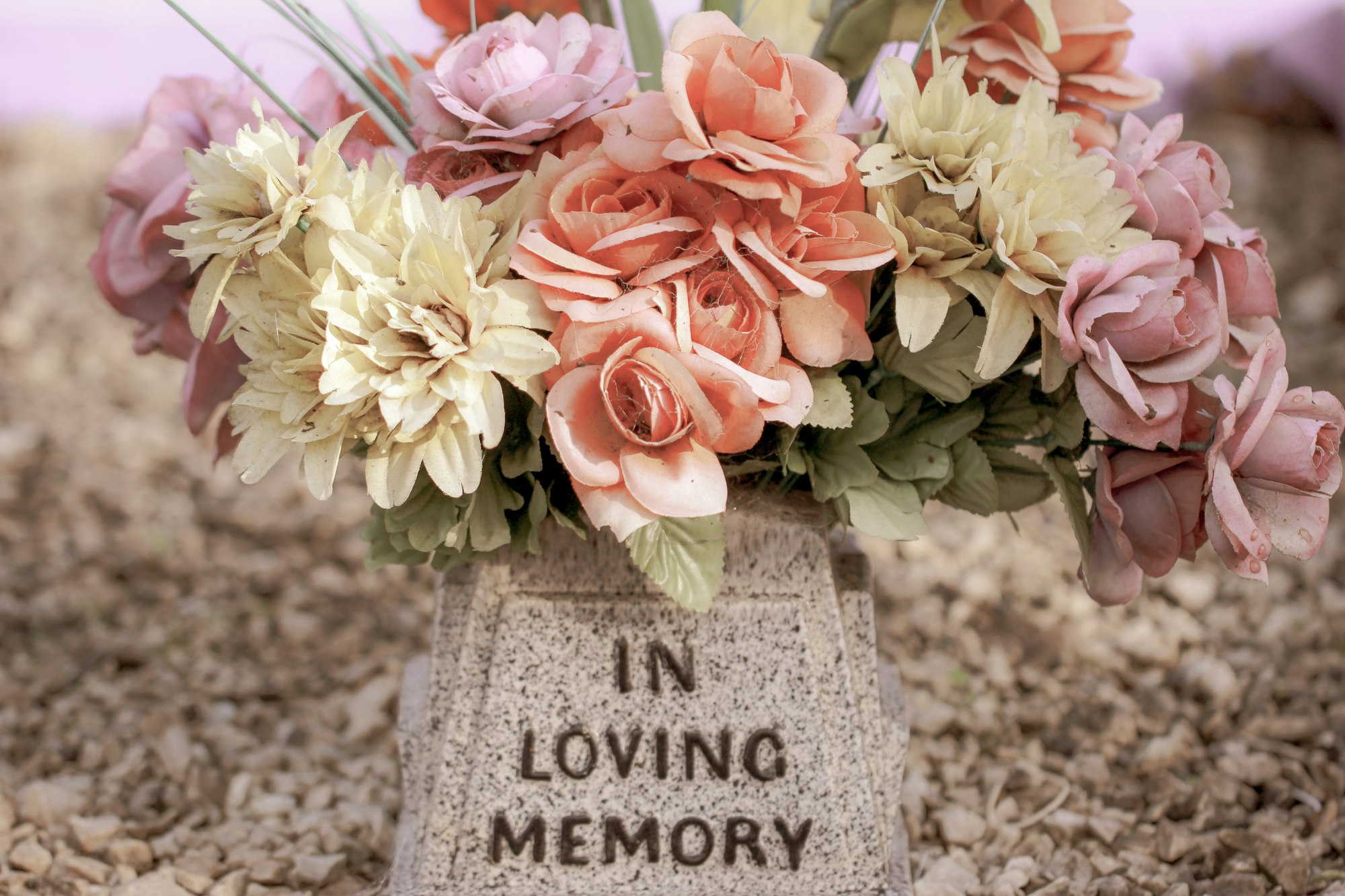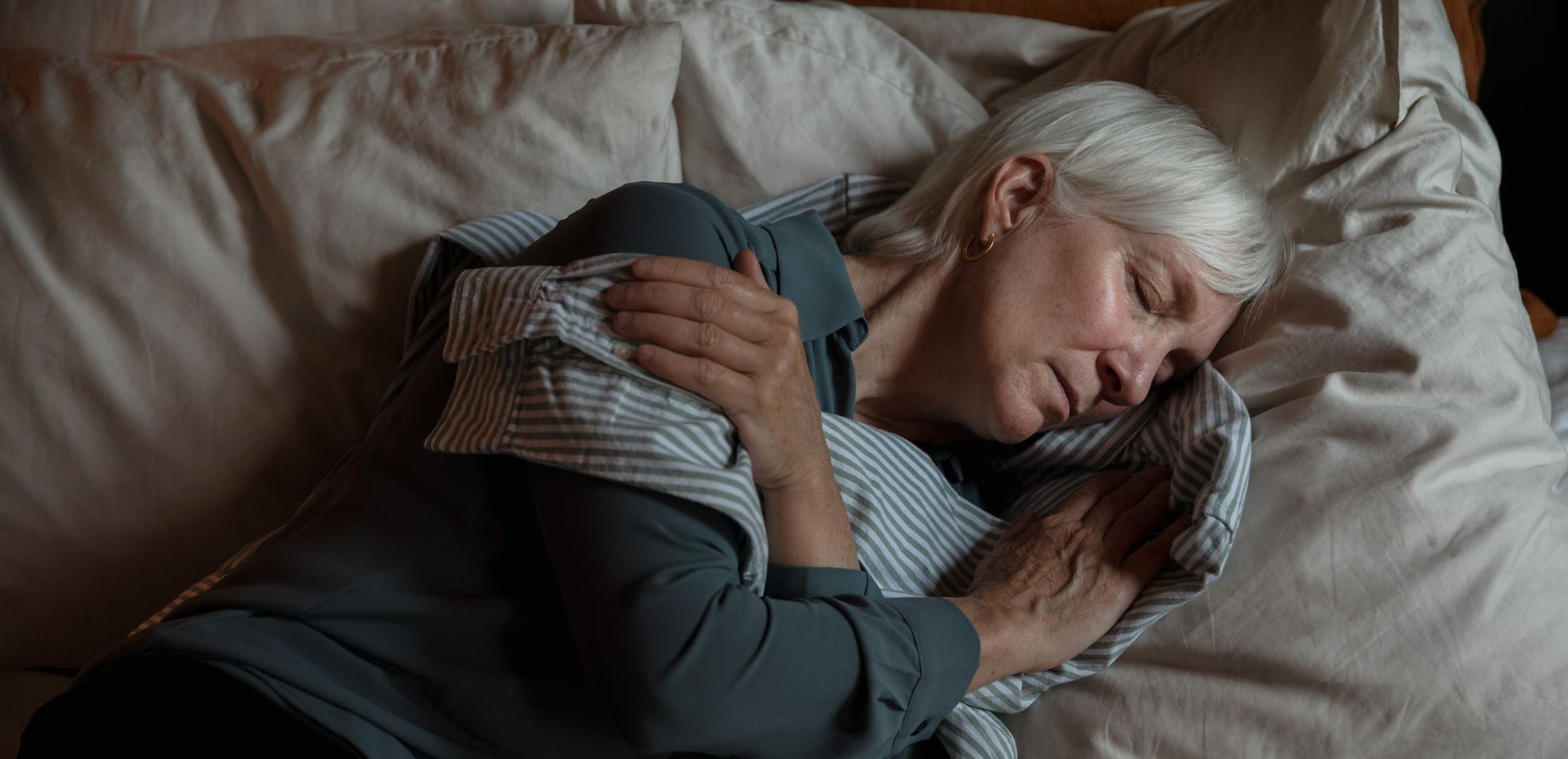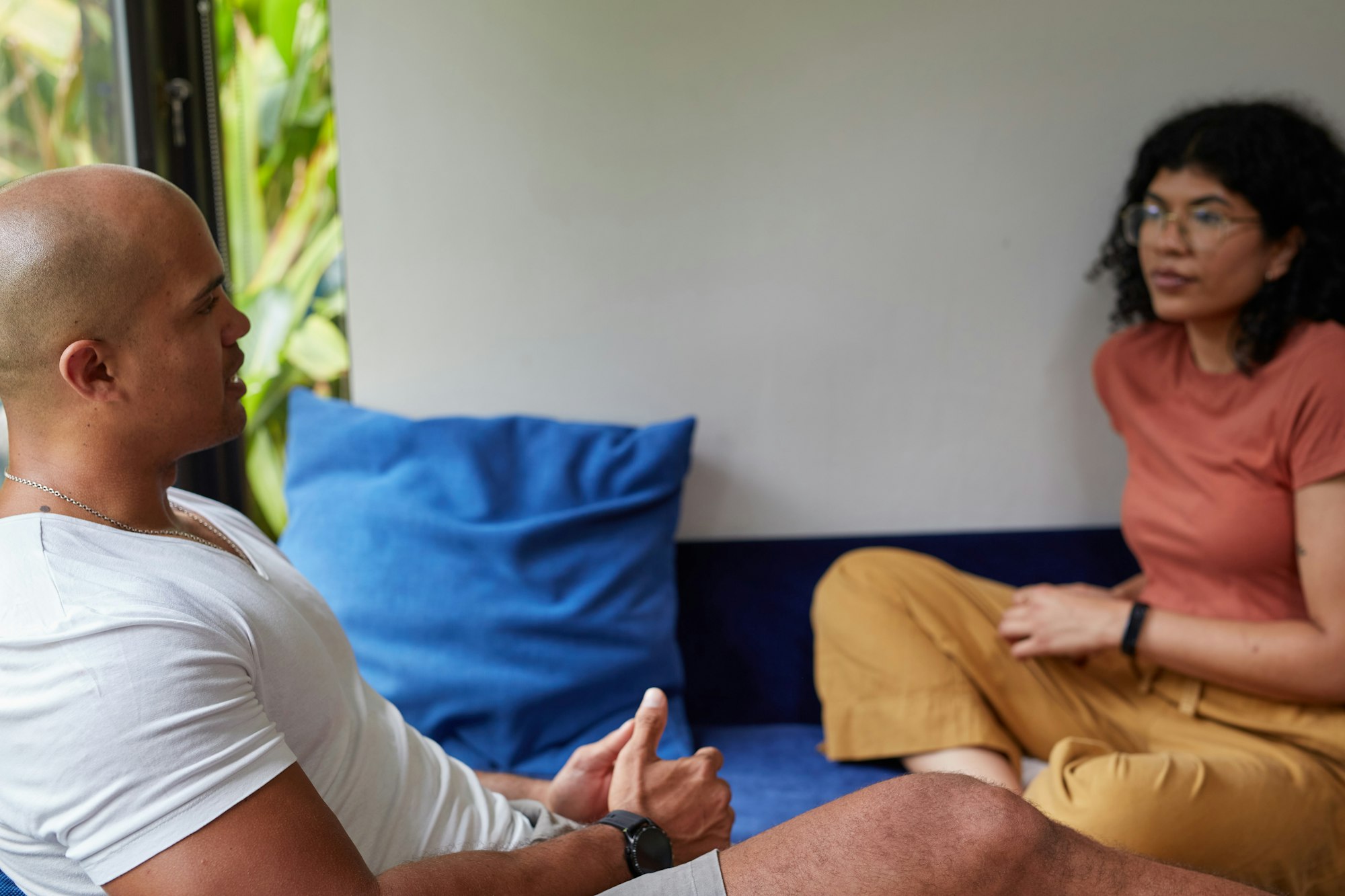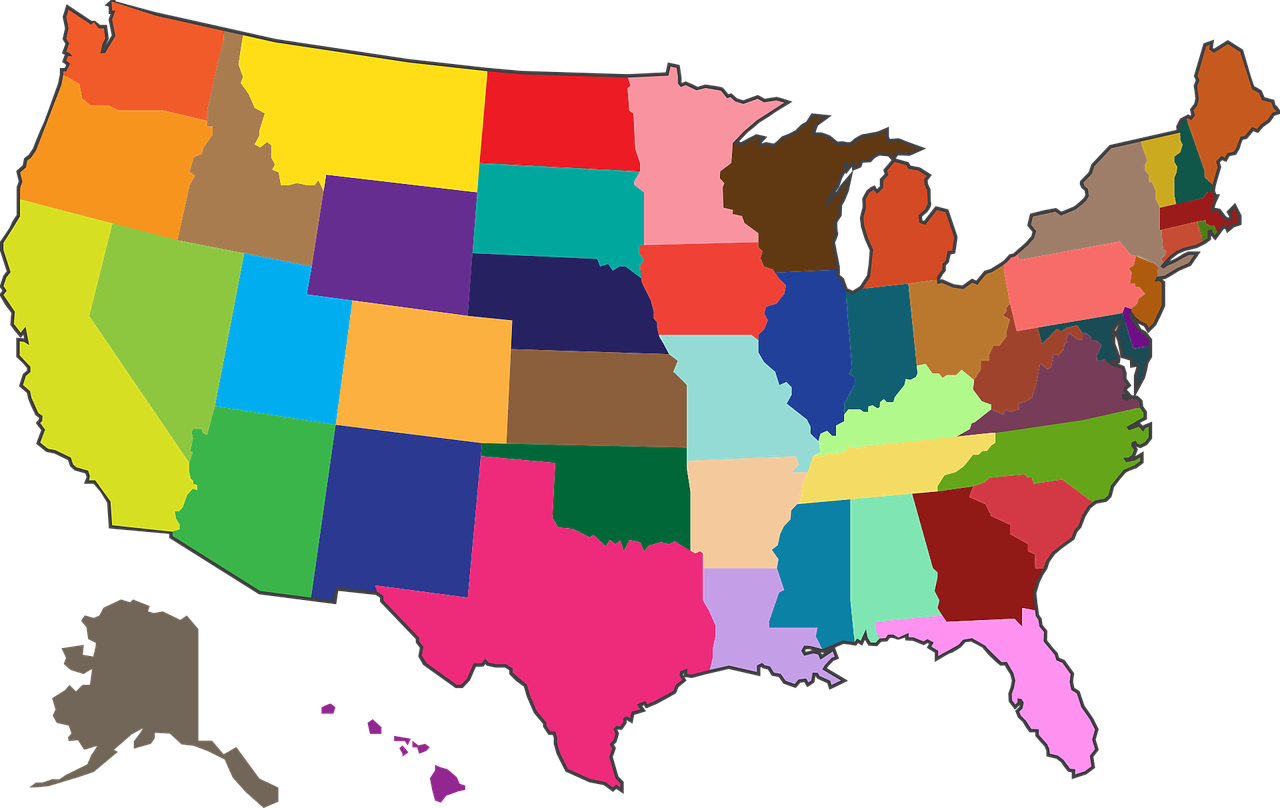Episode 26 – Betsy Wurzel – Early Onset Alzheimer’s Dementia A Caregivers Journey
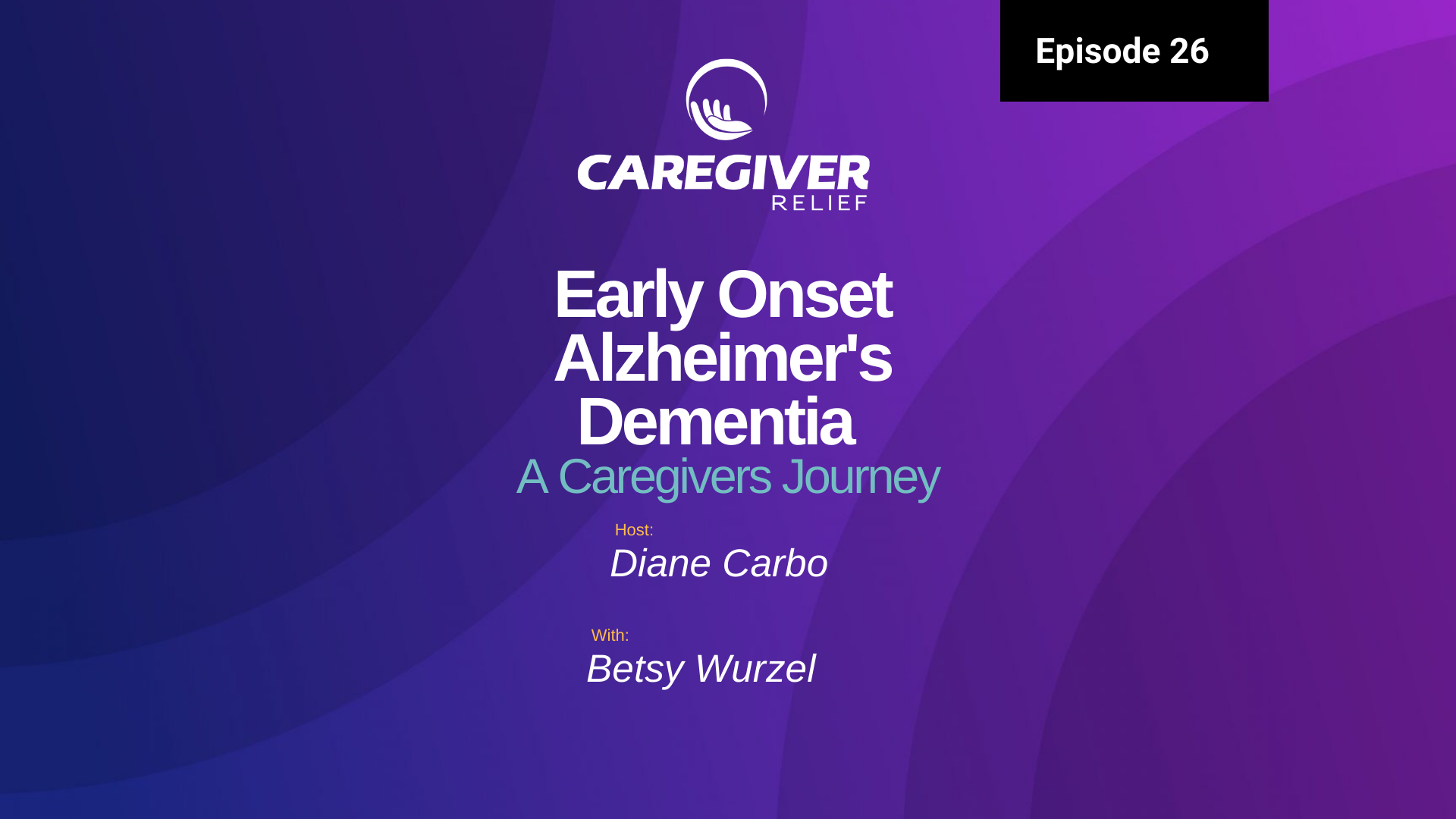

Welcome to Betsy Wurzel's Early Onset Alzheimer's Dementia Caregiver Journey. Alzheimer's disease is a growing health concern, with millions of people diagnosed worldwide. It's a progressive brain disorder that affects memory, thinking, and behavior, subsequently leading to a decline in the ability to perform daily activities. Betsy Wurzel battled this disease as a caregiver, providing care and support for her husband diagnosed with early-onset Alzheimer's. Her journey showcases the challenges that come with caregiver responsibilities. Addressing Caregiver journey is essential to provide specialized support and care for Alzheimer's patients. This blog will detail Betsy's journey as a caregiver, the impact on her work and personal life, emotional struggles, the importance of seeking help, stress management, and the future of Alzheimer's caregiving. Join me as we delve into this emotional and inspiring journey.
Diane Carbo: Hi, this is Diane carbo with caregiver relief. Today I have with me, Betsy . She is dementia care specialist. Our podcast contributor, a caregiver coach and she has the Facebook group. Kick Alzheimer’s ass. I love that name . Betsy and I are going to have a discussion on early onset dementia. Betsy knows this topic all too well because she’s lived it. That’s the welcome. And I’m excited for you to share it. Story with other caregivers out there who are going through a lot right now. And hopefully something that you’ll share with them will click and it will help them.
Betsy Wurzel: Hi, Diane, thank you for having me on. Yes. My husband, Matt was diagnosed at the age of 56 after showing signs of memory loss at work. And at home, it was a battle to get the neurologist to say he had early onset. He was misdiagnosed with depression. He was not believed by the neuropsychologist too.
Betsy Wurzel: Tested him that he could be that bad. She accused him of being non-compliant don’t you just love it when they explains a person. It’s hello, he’s coming to you for memory loss. I just, I didn’t know, 11 years ago what I know now, cause I would have really bringing to her.
Diane Carbo: What I don’t understand is there’s testing that they can do.
Diane Carbo: They’re supposed to be doing . Then you’re telling me the neuropsychologist which should be very familiar with early onset dementia. And the signs and symptoms has let you down. That disturbs me. Can you tell me what tests they did or did not do? And with that information that you have now, what would you have asked.
Betsy Wurzel: Back then. No, it was 11 years ago. I don’t remember the exact name. Matt was there for at least five or six hours. It was an intense cognitive test. She tested his verbal. Non-verbal I know she would show him something to draw to copy. He couldn’t do it. He couldn’t remember what you would just tell him to say back to her. It was quite an intense test. And then she gave him like a book for him to answer questions. And Mattwas fried at that time. He could have taken anymore. So then he might not have cooperated, but I, what I would have done differently, if I would have known better at the time, I would have said to her, why don’t you believe him?
Betsy Wurzel: He’s coming to you for help why don’t you help him? how can you say that he’s being non-compliant with you was he’s telling you, he doesn’t remember what you just showed me. But back then, Diane, 11 years ago, they didn’t know back then what they know now.
Diane Carbo: Yeah. They did to some degree.
Diane Carbo: I understand what you’re saying. And for our listeners out there, I want people to know that the early onset Alzheimer’s disease is someone that’s diagnosed in their fifties, but it can be as early as in their thirties and forties. It has a strong genetic component to it. So if you’ve had grandparents or parents with Alzheimer’s disease, you’re at much greater risk.
Diane Carbo: I’m really disturbed that they didn’t, that the testing they did. She should have known that there was something going on. What did they state that he’s noncompliant? One of the sad parts is we always say we push it’s so important to get a correct diagnosis of early onset and do it as soon as possible.
Diane Carbo: And here you are, you were doing that and you were meeting. Resistance from the medical community.
Betsy Wurzel: Yes. That’s what got me really disgusted. Eventually when I brought a smartphone into my car to raise awareness, because I was so mad how we were treated how Matt was treated, how we were blown off, the doctors did not want to say that Matt had all high risk because of his age.
Betsy Wurzel: We were told he’s too young. He was misdiagnosed the neuropsychologist. Matt had a deep psychological problem and was depressed. And I said, okay. But why can’t he remember? It talks that was February and may, might have been may or June. I put my slip down because Matt would say, he said to me, what time is Sunday school now?
Betsy Wurzel: And that’s what Sunday school for over 20 years. And I said, are you serious, Matt? Are you joking? Cause he was a jokester and he goes, no, I’m serious. What time is it on your watch? You said, I don’t know. I say you don’t know, as in, you can’t read it, you can’t see it. You don’t know. He goes I can’t tell him.
Betsy Wurzel: That’s not depression, Diane, you know that’s not depression. So I went back to the doctor and we went to other neurologist and they said, he’s a meth too young, but that’s MRI showed global shrinkage. Significant
Diane Carbo: global sharing evening. So you’re telling me, even with the MRI showing the major shrinkage, they were still reluctant to give him the diagnosis of early onset.
Betsy Wurzel: Yes. And that’s company, doctor who, I don’t know if she saw him in person or not. She told me, and she wrote a letter to Matt primary doctor. She suspected dementia. She did. She said, I feared that, he does have dementia. She goes, I’m hoping it could be, the reversible coin due to some kind of vitamin deficiency she said, but I don’t think that she never slept test.
Betsy Wurzel: Diane. His G was abnormal for folks who don’t know it’s the brainwave was abnormal and it’s even set on there. So just up, up the night, You just want to throttle so many of these doctors now I’m not promoting violence. So make that clear, you just get so frustrated. So I said to the neurologist, I said, listen, that doesn’t know how to tell it.
Betsy Wurzel: That’s not depression anymore. Call it what it is and get them on medication. And I’d have to tell everyone, Diane, we’re both advocates. You must be an advocate. I don’t care how shy and quiet you are. You have to stand up. And educate yourself. I educated myself with the information that was out there at the time.
Betsy Wurzel: And now I have to say this. I am the caregivers in a way now because there’s a lot of information out there. Now. There’s no reason to be an educated caregiver. It’s up to you. You have to do the homework and you need to do.
Diane Carbo: Absolutely. I think one of the things that caregivers need to understand, and we understand you’re feeling lonely, you’re still here, the possibility of losing your partner that you thought you were believed to spend the rest of your life with is frightening.
Diane Carbo: And then you’re changing your role. From being a romantic, love her partner to whatever, to now be a caregiver and it complicates a relationship. And then you have the healthcare delivery system, our health care professionals letting you down as well. Yeah. So I do recommend, like you say, , do the research on your own and get in touch with people like that.
Diane Carbo: CNI who has been there, done it and know how to support you along the way.
Betsy Wurzel: Yes, I get into a support group. There wasn’t really that many at the time. It was one for young wise, but it was at a time where I couldn’t go go in person. If you can join the online support group. I have to say, because I belong to many support groups like I did when I first joined Facebook, younger onset Alzheimer’s or whatever dementia you have, it has a whole different circums set of circumstances versus someone who is in their eighties and nineties.
Betsy Wurzel: I’m not saying it’s not as terrible, but when you have someone in their prime of life, Getting this disease, their independence does take the way your roles are reversed as traumatic to the family. And then for those who have teenage children, young children, My heart goes out to them because I know it’s difficult.
Betsy Wurzel: My son was already 26, but to have a young child, a teenager and seeing their parent like that, it’s hard. This is so difficult.
Diane Carbo: And we also in our medical delivery system, lack age appropriate services. And I know from having cared in behavioral health units for several many people with early onset dementia, our placement is really hard for them.
Diane Carbo: And there’s a hardship is placed on the families. As well financially because the person is young. They have families. You were blessed in the sense that Josh is a little older, but , I’ve taken care of men or women that have had young children and they had their whole life ahead of them.
Diane Carbo: And all of a sudden. Behaviors are so out of whack that they’re aggressive and violent, which does happen with early onset. I don’t know. We could talk about that later, but there’s sexual inappropriate behavior. And they’re not able to work like you were saying, Matt had problems at work and he couldn’t function.
Betsy Wurzel: His company, I have to say was so good to him. I was actually in his disability hearing because they knew that I couldn’t remember it was so unusual. It was the first time they had a spouse and the disability hearing. They had to get special corporate permission. And they asked Matt permission for me to go.
Betsy Wurzel: And I was like, I was devastated. I was crying in the meeting. I couldn’t believe it. I could not believe cause not didn’t tell me anything. I didn’t, and I wish I would have had this information when I went to neuropsychologist, but Diane, because of HIPAA laws, they wouldn’t tell me anything.
Betsy Wurzel: Yes, they could not tell me. Because I asked the human resource person, that’s all you would have had to done was ask Matt. He would have said yes. And then when you take away their driving, Diane, which is a whole nother topic, it can be a whole nother show and is devastating. You’re taking away someone’s independence, who was, Phil knows what’s going on.
Betsy Wurzel: Matt knew what was going on with his car was taken away. And it is really devastating. The earning potential, Matt had 10 more years left gone. You’re going from, more than half your pay cut because you go on social security disability. This is , a huge financial problem.
Diane Carbo: People don’t understand as well that when you apply for social security disability, it could take as long as two years now. I understand, especially when you’re young younger people. Nice special waivers to get into these programs. I know , that’s why it’s important to have an accurate diagnosis because there is a waiver for early onset dementia.
Diane Carbo: Now, maybe it didn’t exist when Matt was initially. Diagnosed, but people struggle with getting approvals for social security disability when they’re under the age of 65. And it is a brutal struggle.
Betsy Wurzel: We were fortunate. We had doctor’s notes. We had documentation a lot of documentation when we went to social security.
Betsy Wurzel: And the person who did the intake, her father died of early onset Alzheimer’s and she said, my father died at 67 from this. She said, I’m putting you on the fast track. We got it within less than a month. So it’s who your person is. Yes, you
Diane Carbo: were very blessed because what I know from my personal experiences, not only is the person that was the early onset dementia, not able to work, but oftentimes the spouse has to quit work to care for the person with the early onset and the finances, just the financial piece gets tight and When they become a full-time caregiver.
Diane Carbo: Then they lose medical benefits and it’s just a vicious circle. So it’s really important that people know when they’re trying to apply for these benefits, that they have all the documentation. And sometimes you might have to go to the employer and ask, is early retirement and options for you.
Diane Carbo: Till you get through the social security benefit program, and then you have to do research into, social security, Medicare, and Medicaid. It’s important to get your papers in order to that, you can organize your financial documents so that you can manage your family’s finances, but also understand what you need to do to qualify for different programs.
Diane Carbo: And it’s really challenging for the young family. It just really is.
Betsy Wurzel: Yes, it is. And you have maybe children that are in college. Going to college and then a parent is on social security disability. So then how do you afford to send your child to college? You might need your child at home.
Betsy Wurzel: Are they willing to do that? I’m very blessed that Josh lives at home. And that he helped take care of his dad. Otherwise I would have had to quit work. We did a tag team and I was really blessed that I still was able to work. I did apply for myself for early retirement and case.
Betsy Wurzel: I had to stay home to take care of Matt and I would have some income, but I was old enough. Because I had turned 62. But what do you do when you’re not 62? And then even at 62, if you apply for early retirement, you don’t get as much in social security as you are when you wait until you’re 67. You’re going to say, a lot of people are in that situation and are going to have to really maybe move in with people to be able to afford.
Betsy Wurzel: Housing, this is going to be a huge problem.
Diane Carbo: It definitely is. , one of the things we lack as a country is affordable senior housing for one thing. And there’s a lack of professional caregivers out there.
Diane Carbo: And for those of you who are doing it, you are the largest group of healthcare workers out there because you’re doing the actual care. You are not paying into social security, you’re not into your future. So we’re going to have a situation where we’re getting, going to have a crisis. 10 to 20 years in regards to housing
Diane Carbo: We were the hippies, in the seventies back commune you live in, we’re going to have to do
Betsy Wurzel: yes. Yes, I believe so. You have a situation like. The TV show, the golden girls, you had a few people living together, a communal type situation. then , as a staff, quit work, then your social security earnings are going to be down.
Betsy Wurzel: Or also the
Diane Carbo: prime. I can’t tell you how many times I have had. A client, a patient admitted to a senior behavioral health unit for early onset. Their behaviors can be aggressive. They can be very scary at times. I find it very sad and frustrating for the families because placement is not available for those kinds of behaviors.
Diane Carbo: And it’s very hard for people to find placement and they’re stuck taking those kinds of patients with those behaviors home. So medical intervention means zonking them sometimes to be able to have them at home and function and feel safe. So people really struggle with that. They really do.
Betsy Wurzel: Yes. And Diane speaking of medication, the listeners need to go back to the show that we did about medication side effects and listen to that because that is a tremendous. Burden on a family member. I know personally, I worked as a nurse, but personally given my husband medication that caused horrible side effects made me feel guilty.
Betsy Wurzel: I felt terrible. Just to see the deterioration, you had two things going on, the deterioration as the disease progressed, and then the medication I felt making that worse. And that’s a really difficult thing to deal with as a caregiver. With counseling. I, and I’m not ashamed to say I go for counseling.
Betsy Wurzel: I think everyone should. I got over that. But because, and this is a whole nother show to Diane caregiver, guilt,
Diane Carbo: I always tell my caregivers, it’s a wasted emotion. It causes shame and negates all the good you’ve done. So get rid
Betsy Wurzel: of it. Exactly. Yes.
Diane Carbo: I do want to make our listeners aware of there is a lead program, L E a D S. It’s the longitudinal early onset Alzheimer’s disease study. Big words. And if you can enroll in this and if it’s done by the Alzheimer’s association and it’s helping to create information or gather information.
Diane Carbo: On early onset Alzheimer’s. I think that’s very interesting and an important thing. I just pulled up the study or ability here, individuals with early onset Alzheimer’s disease, including mild cognitive impairment and those without Alzheimer’s can participate. In the lease program, you have to be between the ages of 40 and 64.
Diane Carbo: Unfortunately you have to be fluent in English. That’s disappointing to me, but that’s neither here nor there. That’s just my personal opinion because we have so many Spanish speaking people in our country right now, or other languages. And you have to be in general, good health I don’t have another neurological disorder and you have a family member or family caregiver who can provide information about the lifestyle.
Diane Carbo: That’s an important thing that I think that caregivers, when you’re stuck out there and you’re not getting the right answers from the medical community. You might want to look into participating in this study because it can help people , in the future, if not now,
Betsy Wurzel: Yeah. So are places who do have studies here.
Betsy Wurzel: I live in New Jersey. They do have a research going on clinical trials and as I may die, and I want to tell the people are listening and you live in New Jersey, or you have a relative that is in New Jersey. Please contact it’s called COPD. C O P S a they have support groups. They do they do clinical trials, but they have a great team over there.
Betsy Wurzel: Can I get their phone number, Diane? Absolutely. There are some number is 1 804 2 4 2 4 9 4. And they are connected with the Rutgers university here in New Jersey. Matt’s mom went there like 20 years ago and they didn’t even have back then what they have now. They have many different types of support groups, early onset for children spouses say they didn’t have this 20 years ago.
Betsy Wurzel: They didn’t, I don’t even think they had it 11 years. But it’s just a nominal program. I attend their virtual bereavement group once a month. They have seminars. So if you’re in New Jersey or you have a relative New Jersey, you can qualify to go or to attend. So check that out and contact me if you want with the information.
Diane Carbo: Absolutely. You can find you on your site or Facebook kick all timers ass, or you can find her@doccaregiverrelease.com. I think that’s really important. , clinical studies are important there are studies get involved in clinical studies if you can, because it’s so important that we get information out there in regards to the.
Diane Carbo: Diagnosis and proper treatment. I have to tell you Betsy, that you and I both feel that we need to educate our healthcare professionals.
Betsy Wurzel: Yes. Diane, it annoys me even in today’s society. My brother was not diagnosed. Alzheimer’s but he was having memory issues a year before he died.
Betsy Wurzel: And the neurologist attitude was if it’s dementia, there’s nothing we can do anyway. And we’ll just wait and see if I wasn’t, my mother, I would have went ballistic right in that. But my mom bless her. She’s in her nineties, she won’t fight a doctor. No, I told her, give me the phone, I’ll fight with them, but of course she wouldn’t do that.
Diane Carbo: , I am going to make the comment at, I think our disease specific organization. Like the Alzheimer’s association, Parkinson’s early onset organizations out there. The disease specific organizations are so busy raising funds for cure. And I get, we want a cure. I get that. I really do, but they really neglect.
Diane Carbo: They financially neglect that care that the family caregiver who desperately needs respite care and help, and there’s gotta be a change in that. We go out, we do walk, we do everything to promote,, getting a cure for all these diseases. And I can tell you I’m frustrated at the billions and billions of dollars spent on research.
Diane Carbo: And there’s nothing done for the family caregiver. There’s no programs when these companies, if they were organizations would get together and provide
Diane Carbo: Respite care for the caregiver, there’s gotta be a way that it can be done. The money can be it’s there. It’s just utilized in a different way.
Diane Carbo: But I think caregivers have to demand that we are the largest unpaid group. Of healthcare workers out there. We are the invisible healthcare workers. I think it’s time that caregivers band together as a group and demand that things change to help with care in the home. This is me because I feel really bad.
Diane Carbo: We’re not paying into social security and we’re saving our government billions and billions of dollars a year, providing care at home at a great expense to our own financial, emotional and physical wellbeing.
Betsy Wurzel: Yes. I agree. A hundred percent Diana, caregivers need help now. And I agree.
Betsy Wurzel: Yeah, that’s great for a cure, but how long you’ve been working on the cure? Alzheimer’s is over 116 years old folks. There’s no cure. We, the caregivers and I still feel well, I am a caregiver. I’m a caregiver to my son, but that’s a different type. I will never forget my caregiving journey. Caregivers need help now,
Betsy Wurzel: they need money for the pen. They need money for a respite. They need a break before they break. And I have to say Diane, that the dementia spotlight foundation. Helps people, all timers music sets, they raise money to help caregivers. They help caregivers down. And I think in the Georgia Florida area they’re gonna have that Alzheimer’s music Fest coming up in Florida in August.
Betsy Wurzel: And I can, when I get their information, I can share it with you, Diane. Cause that’s a great cause they help caregivers and they help them now.
Diane Carbo: And I hope that our caregivers out there will, when they’re looking to work with organizations, they work with the organizations that are going to help them.
Diane Carbo: Now and not for the cure in the future, the cure is it may never come. We’re pouring so much money into it. And big pharma and youth organizations, I get what they’re doing, but they are neglecting the family caregiver and we’re hearing 63%.
Diane Carbo: It used to be 50% tenant, 10, 15 years ago. But now it’s up to 63% of our caregivers, family caregivers of a senior caring for an aging loved one at home dies or become seriously ill before the person with dementia does.
Betsy Wurzel: Yes. And that’s a scary thought not to mention the fact that they have become suicidal.
Betsy Wurzel: Yes, exactly. Yeah. And that’s the problem folks, they say prevention I’m from the school. Diane. Yes. Exercise is great. Diet is great for trying to prevent it, but really is there a way to prevent it? Nobody really knows. Know, that the healthier you are when you get the free in disease, you have a better chance of living longer.
Betsy Wurzel: That was very healthy. He lived 10 years with Alzheimer’s. I think he was probably had two years prior to diagnosis, but that, he didn’t have any co morbidities. He didn’t have any of that. So he was able to live longer. And, and yes, you can live well with dementia up to a certain point.
Betsy Wurzel: Matt enjoyed life up until a certain point. They get to a certain point. And then they go downhill. That’s a SOC folks and I’m a Jersey girl and I will not sugar coat this disgusting, horrible monster because it can’t be sugarcoated and I will not sugar coat it.
Diane Carbo: I have to tell you, Betsy, I agree with you that it is an ugly, terrible, debilitating disease.
Diane Carbo: And we’re also learning that the people that are caring for somebody with dementia, because it is such a, it can be a very long process. 10 years, 20 years. They can live a life, a good life to a certain point in you’re. It does go downhill from there. And then it’s very challenging, many try to keep the family member at home.
Diane Carbo: But because of all the multitasking, the levels of stress that family caregivers experienced, they are more prone to developing dementia. Then people that were non
Betsy Wurzel: caregivers. I can definitely believe that, the lack of sleep. I look back now, Diane, and I think, how did I do it? How did I, the only, I could only say I believe in God, I give God the glory because it wasn’t for God’s strength and grace, I wouldn’t have made it through.
Betsy Wurzel: I made it through. Thank God. My mind intact and my health, I have some minor issues, but basically, healthy and in good shape. And I don’t know if I would have been, if Matt would have lived longer. I think it would have been the point where I would not have been able to take care of him at home.
Betsy Wurzel: He was heading that way when he died. I don’t feel guilty when I say this. I’m glad Matt died when he did, he died before COVID and I’m glad I took him home then to have suffered some more.
Diane Carbo: I can tell you that many caregivers of somebody that is provided care for somebody with dementia has released when they die.
Diane Carbo: People think that’s terrible and cruel and awful, but it’s the reality that. You do have relief because it’s a burden, . You do it with love and you do it with selflessness and caring, but it is a burden for many, and you suffer the consequences. The consequences of caregivers stress lasts as long as three years after your caregiving journey is over.
Diane Carbo: So many caregivers are diagnosed with other illnesses because of lack of self-care and the stress that they’ve been under for up to three years, four years after they have their giving
Betsy Wurzel: journey is over. But why I definitely could understand that it’s a year and a half for me. I’ll just now. I’m doing much better, but I’m just now trying to yes I’m moving on.
Betsy Wurzel: I had post-traumatic stress from caregiving. I do, I get up and I’m like, my heart’s palpitating. I went to the cardiologist. I went last year. I went this year because I still get to where all I got to rush. I got to rush. And then I had to realize Matt’s not here. I don’t have to rush. I don’t have to rush to do this and this.
Betsy Wurzel: I, when I think every day of what I did, it’s really amazing that I’m still alive. And then the shape that I’m in. It’s a lot of folks I’m telling you from experience. It’s a lot and caregivers, you must take care of yourself and that’s not selfish to put yourself first. It’s called a survival because your loved one.
Betsy Wurzel: And I don’t mean to sound cruel is going to die. And you’re still going to have a life afterwards, as you want to enjoy life after caregiving, you have to take care of yourself during caregiving. That’s the bottom line. And that’s what our loved ones would want us to do. And I will do a talk Diane on surviving and thriving during caregiving, we all have a right to enjoy life after caregiving.
Diane Carbo: Absolutely. You have a right to a life during caregiving. And many don’t understand that. I know that people feel like many high, there are many people that have early onset. Hi there. Like you said, Matt, wasn’t telling you what was going on at work and the work didn’t call because of HIPAA. So some unique challenges and there’s also stigma and stereotypes about the disease.
Diane Carbo: What you experienced is what Matt experienced with many don’t believe that they have the disease or questioned a diagnosis. Here you were dealing with the healthcare providers that were doing. I can’t believe that it’s difficult as in he needs to be. There’s a big people lose relationships and jobs.
Diane Carbo: Is it consequence because they misunderstand and were not identified as medically ill or disabled? And it’s very difficult to deal with as, as you well know. So our medical delivery system let you down and may let others down. So one of the points we have to get across here is you, if you have to fight.
Diane Carbo: And one of the things I have to say, Betsy, is that I am truly honored and blessed. You are part of our team that is willing to get up there and tell these caregivers, you got a fight when people are telling you, you don’t know what you’re talking about, or it makes you sound like you are the crazy one.
Betsy Wurzel: Please reach out to us,
Diane Carbo: reach out to others because. We both have battled the medical delivery system on different levels and we know what to do, and we will be there to help support you and lift you up when you feel down.
Betsy Wurzel: Yes, it is a task, when you know your loved one, we know our loved ones that are in the medical profession.
Betsy Wurzel: And that’s what they have to understand that we know our loved one. We’re not crazy. We know that there’s something wrong and to be told that there’s not or someone’s not trying hard enough during testing, and that’s not the only one I’ve interviewed caregivers who have said, or people who have, or do have dementia that were blamed that they didn’t do well on it.
Betsy Wurzel: How dare somebody, a neuro-psychologist blame, a person who’s coming to them for help, and you didn’t try hard enough. I wouldn’t have really called up her supervisor as I would have known back 11 years ago, but I know now, the information wasn’t as prominent as it is now. This is why I say caregivers.
Betsy Wurzel: Educate yourself. Educate yourself.
Diane Carbo: And educate our healthcare professionals. They will listen to you go up the call, go on up the chain of command. If there’s a practice manager, a doctor’s not listening, there’s gotta be a practice manager or somebody who will listen, get a second opinion, get a third opinion.
Diane Carbo: Somebody will listen eventually and it’s a battle and you don’t have the energy sometimes to do it. And I understand that God bless I do. I’ve been there. You’ve been there and we shouldn’t be second guessed.
Betsy Wurzel: That’s right.
Diane Carbo: One of the issues I have is when the doctors don’t want any feedback from the family at all.
Diane Carbo: I really have issues with that. I have seen. The patients blatantly lie that they’re compliant. They’re this they’re that are, they confabulating make up a story that is totally untrue. And when the family goes to interject that I’ve had doctors put their hand up and say, I don’t want any information.
Diane Carbo: And that makes me crazy because I blatantly come out and say, I just outright say this is not true. What you’re hearing is not true. And doctors don’t want, sometimes they don’t want to hear it. They don’t want to know it. And it’s frustrating.
Betsy Wurzel: Diane. I’m that’s primary doctor. Who’s very nice. Doctor blew me off. He blew us off when I said that MedStar had memory problems and that happened to be in the hospital at the time for another issue. He said I’ll no, but when that primary gut said no, from this company, doctor, he called me and he was like, holy crap, Betsy, I didn’t know this.
Betsy Wurzel: So that’s who I tried to tell them. She goes, I can’t believe it. I can’t believe it.
Diane Carbo: I think that if we’ve accomplished anything today, I hope our caregivers know we’re there for them. We’ve been there. We’ve lived it. We understand we are here to support you and guide you when nobody else will listen.
Betsy Wurzel: Yes. And we have to question. I told my mom, I say question the neurologist, ask if he knows about vascular dementia, question, your doctor, say, how educated are you about the field of dementia? Don’t be afraid to question them and their knowledge and that they feel. Threatened by that go to another doctor.
Betsy Wurzel: I
Diane Carbo: agree. I take clients to the the primary care and I always, and they’ve had diagnosis of dementia and I always find it strange that they don’t do a mini mental At least every few visits to assess whether there’s a change in mental status. I’ve had patients say, my family members wandering or whatever.
Diane Carbo: And I have an issue with the fact that That they’re having these behaviors and the nurses respond well, it’s okay. Everything will be okay. Take them home and they’ll be fine. No there’s issues here. What do we do? This is another point I’m going to make is we are not only the caregivers that are not only invisible healthcare workers.
Diane Carbo: We are invisible to the medical. Professionals and what should be happening through these programs that I’m encouraging everybody like the organizations, the disease organizations, we should be able to have a doctor’s appointment at the same time as our family member to get our own health issues addressed.
Diane Carbo: And we should be able to we should have healthcare. Workers or social workers that are on staff or available to us, these organizations somehow to help provide us with that we need and community support to get some care in the home or to listen to us. You would go to counseling, you have counseling benefits.
Diane Carbo: But here’s the fact that people don’t know, Medicare advantage is only available to people under the age of 65. You have to have a Medicare advantage program. You can’t purchase a supplement and under Medicare advantage. Everybody says, oh, you get it. You get this wonderful coverage.
Diane Carbo: You get dental, you get it. Hello. You don’t get any mental health benefits at all. And Medicare advantage is to prevent things. And Medicare advantage is great if you’re healthy and well, but when you need it for other care, when you’re seriously ill, it provides. Services dramatically.
Diane Carbo: You’re limited to the doctors. You’re limited to the testing. You’re limited to the specialist. You just very limited. And what people don’t understand is that with that Medicare advantage programs that you have, you are, if you want services, you have to private pay for those services.
Betsy Wurzel: Yeah, that’s a whole, like for counseling on my insurance, I had that affordable health care program, which is not, I go through my senior center in my township. So if you don’t have. A great insurance check, your senior center where you live especially in the United States check and don’t swallow your pride.
Betsy Wurzel: They give free counseling. I remember that when I went for a Medicare for that to help me with Medicare, with mat different programs to prescription they’re there to help. They get a grant. And when the social worker said, we give counseling and you qualify. Cause you’re the spouse. I kept that in mind because I’ll ask them that side.
Betsy Wurzel: I said, do you still get free counseling? She said, yes. So at that time I was, and I thought it was 62, so I closed. Hard to wrap my head around them, a senior citizen, I’m considered a senior citizen now, but now I’m 63 and you know what I take advantage of their programs, whatever they walk for.
Betsy Wurzel: Zoom probe, zoom seminars, counseling, we pay taxes and my role take advantage. Exactly.
Betsy Wurzel: Betsy, we’ve covered a lot today and I’m so grateful that you were able to share this information and your experience with others. I’m going to end the podcast with my usual spiel to my caregivers out there.
Betsy Wurzel: Remember you are the most important part in the caregiving journey without you. It all falls apart. Practice. Self-care be gentle with yourself because you are worth it. Thanks, Bessie. And until next time
Betsy Wurzel: I appreciate you. Oh, I appreciate you too. Diane. Thank you for what you are doing to help other people.
Betsy Wurzel: It’s just, I love you. I love what you’re doing.
Diane Carbo: I love you too, Betsy.
Betsy Wurzel: Thank you.
Conclusion:
As I reflect on Betsy Wurzel's journey, I am reminded of the crucial role that dementia caregivers play in the lives of their loved ones. The emotional struggles, lack of resources, and impact on personal and work life can make it a challenging journey. However, seeking support and practicing self-care can help alleviate the stress. It is essential to spread awareness about Alzheimer's disease and its impact on caregivers, to ensure they get the support they need. We can make a difference by advocating for caregiver support and funding for Alzheimer's research. Let's support all the caregivers out there who are fighting tirelessly to make their loved ones' lives comfortable.
You might also like this article:


